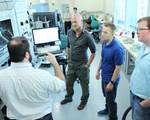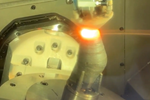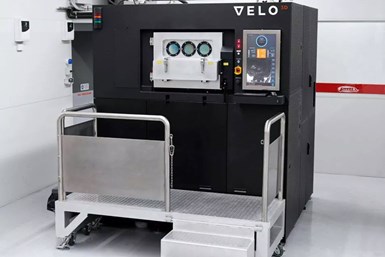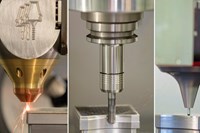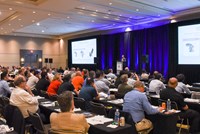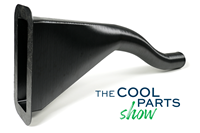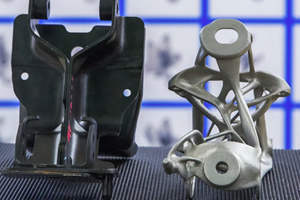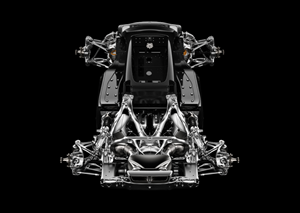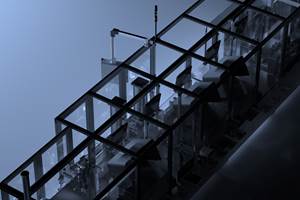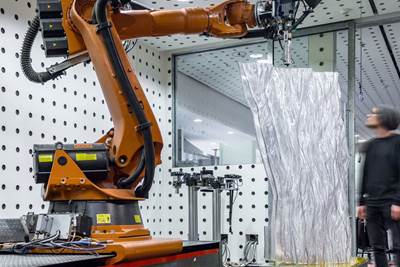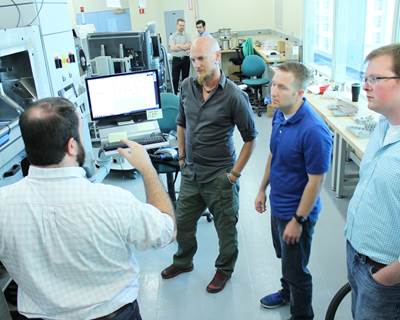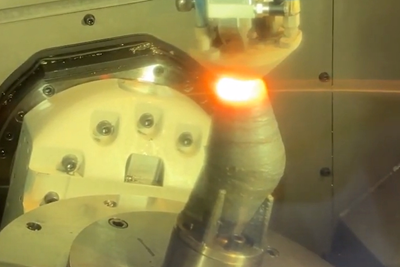Velo3D Qualifies Aluminum Alloy to Support Formula 1 Customers
Aluminum alloy supports Formula 1 customers by enabling the production of parts requiring high thermal conductivity and durability, and is available to print in both 50 and 100 micron layers.
Velo3D, a metal additive manufacturing technology provider for mission-critical parts, and PWR Advanced Cooling Technology have partnered to qualify Aheadd CP1, an aluminum alloy developed by Constellium, for use in Sapphire printers.
PWR will use the alloy to manufacture highly efficient, compact and lightweight heat exchangers for Formula 1 along with a variety of other components for their high-performance customers. In addition to the standard 50-micron layer thickness that all Velo3D printers use, Aheadd CP1 is also being qualified to print in 100-micron layers, providing customers with a balance between finished part performance and system throughput.
The Fédération Internationale de l'Automobile (FIA), the governing body over Formula 1 and other global motorsports, recently approved the Aheadd CP1 alloy for use in Formula 1 cars beginning in the 2024 season. This effort was largely driven by PWR — which works with many professional motorsports teams to provide them with finished, tested and ready-to-use heat exchangers — and its customers.
“Our team is committed to listening to customers and enhancing our technology to meet their needs, so when PWR came to us with a challenge of qualifying a new alloy with a first-of-its-kind parameter set, we were thrilled to partner with them on the project,” says Dr. Zachary Detweiler, Velo3D vice president of technology. “Aheadd CP1 is the first alloy qualified in our Augsburg, Germany, European Technology Center. Our American and European teams are both adept at creating scalable solutions for metal AM materials and we encourage companies who need customized material development for their applications to contact us about their specific requirements.”
For more than two decades, PWR has provided its customers in F1, NASCAR, V8 Supercars, Deutsche Tourenwagen Masters and other motorsport categories with quality, high-performance aluminum radiators, intercoolers, oil coolers and other finished parts. It also services customers in the energy, defense and aerospace industries. The company is AS9100D and ISO 14001 certified, ITAR compliant and has secured Nadcap accreditations for its chemical processing and heat-treating services.
“Aheadd CP1 is a fantastic addition to our additive manufacturing services and Velo3D’s unparalleled print capabilities coupled with PWR’s brazed fin technology creates a unique performance differentiator for our customers,” says Mark Booker, PWR technical project manager. “Our goal is to give our racing customers an unfair advantage on the track and we look forward to seeing these teams win using new parts manufactured by PWR.”
Aheadd CP1 is an aluminum, zirconium, iron alloy that is specially designed for laser powder bed fusion printers like Velo3D’s Sapphire family of printers. It is thermally stable up to 300°C, provides excellent corrosion resistance, is highly isotropic, and printed parts have excellent surface finish and stable microstructures.
- Read Velo3D founder’s views on the three biggest challenges of 3D printing metal parts. Velo3D CEO and founder Benny Buller offers this perspective on cost, qualification and ease of development as they apply to the progress of AM adoption in the future.
- Learn about the Velo3D partnership with PhysicsX to provide engineers with AI simulation tooling. The collaboration gives Velo3D customers access to AI-enabled physics simulation and optimization capabilities, and gives PhysicsX customers increased manufacturing flexibility to produce their most advanced concepts.
Related Content
How Additive Manufacturing Is Transforming EVs and Transportation: AM Radio #23
As 3D printing is adopted into the electric vehicle (EV) market, it is not just vehicles that are being reshaped. In this episode of the AM Radio podcast, we discuss additive manufacturing and the future of transportation.
Read More3D Printed Cold Plate for an Electric Race Car: The Cool Parts Show #51
An unconventional lattice design and biomimicry are key to the performance of this fluid-cooled heat exchanger for a battery-powered race car.
Read MoreDivergent Technologies Eyes High-Volume, Optimized Automotive Production Through Additive
While some automotive OEMs are using additive here and there, Divergent Technologies is basing its vehicles on 3D printed structures.
Read MoreMultimaterial 3D Printing Enables Solid State Batteries
By combining different 3D printing processes and materials in a single layer, Sakuu’s Kavian platform can produce batteries for electric vehicles and other applications with twice the energy density and greater safety than traditional lithium-ion solutions.
Read MoreRead Next
3D Printing Brings Sustainability, Accessibility to Glass Manufacturing
Australian startup Maple Glass Printing has developed a process for extruding glass into artwork, lab implements and architectural elements. Along the way, the company has also found more efficient ways of recycling this material.
Read More4 Ways the Education and Training Challenge Is Different for Additive Manufacturing
The advance of additive manufacturing means we need more professionals educated in AM technology.
Read MoreHybrid Additive Manufacturing Machine Tools Continue to Make Gains (Includes Video)
The hybrid machine tool is an idea that continues to advance. Two important developments of recent years expand the possibilities for this platform.
Read More


